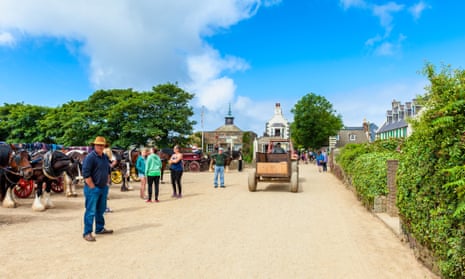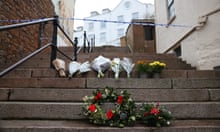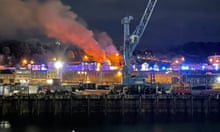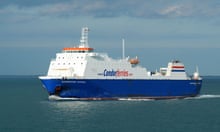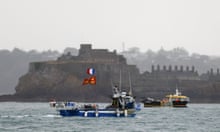The tiny Channel Island of Sark promotes itself as a retreat from the bright lights and noise of the city but it could be about to become much darker and a lot quieter after its sole electricity provider threatened to pull the plug.
Sark Electricity Ltd, which has powered the island for decades, has said it will be forced to cut the supply on 30 November after a bitter dispute with the authorities over its pricing system.
Emergency plans are being drawn up by the island’s parliament – known as Chief Pleas – to deal with the crisis but there are fears it may be forced to evacuate Sark’s 500 residents.
“We hope and pray it won’t come to that but we’re almost in a state of civil emergency,” said Tony Le Lievre, the chairman of Sark’s chamber of commerce.
“People are very concerned. It’s not just that the lights will go out but we rely on electricity for our water supply. We pump our water up from the aquifer. If the electricity goes we won’t have any lights or any water.”
Le Lievre said there was still a chance the crisis would be averted. “I hope someone with some common sense will get everyone to sit down, perhaps with a mediator, and work this out.”
William Raymond, one of the members of Chief Pleas, said the government was busy planning how to cope. “We are drawing up contingency plans as we move towards 30November. We have to make sure that island residents are in a secure position.
“The plans are in the development stage so I can’t give out too much details, but it will involve consolidating around certain centres – making sure there are certain buildings that have power so people can congregate there.”
Raymond said people were pulling together. “A wartime kind of mentality is developing. People are determined to make the best of it. It is bringing the community together.” Asked if he feared the island would have to evacuate, he said: “I”m not going anywhere.”
In 1947 it was decided that Sark – then one of the last feudal states in the western world – needed a stable island-wide electricity supply. Malcolm Robson, the chief engineer of another channel island, Herm, installed a former military searchlight generator.
Islanders began using toasters, kettles, sewing machines and televisions, but many were initially perplexed by “the electric”. One resident, according to the electricity company’s history, wanted two plugs installed – one for the TV, the second for a single light to make it easier to refill the oil lamps.
Robson Electric Supply Company was taken over in 1969 by the Gordon-Brown family and is now called Sark Electricity Ltd (SEL).
Fifty years on, the relationship between SEL and the Sark authorities has soured. The new role of the independent Sark electricity price control commissioner was created in 2016 and he decided that islanders were paying too much for their electricity and ordered SEL to reduce its tariff from 66p/kWh to 52p.
But the chief executive of SEL, David Gordon-Brown, said the company cannot afford to make the cut. “The last thing I want to do is turn off the electricity just before Christmas but I am not going to have any choice,” he said.
He claimed SEL had already lost £65,000 this year because the island’s economy was struggling and businesses were closing, and he accused the Chief Pleas of wanting to force him to sell the company. “I’m not prepared to do that,” he said.
In a letter sent to all 300 households on Sark, Gordon-Brown said: “Without the electricity to provide water, the government would quickly have a public health emergency if it allows anyone to remain on Sark.”
The island is renowned as one of the few remaining places in the world where cars are banned and locals and visitors walk, cycle or travel on horse-drawn carriages.
Rosanne Guille, an artist, said: “We are a tiny island, vulnerable but fiercely independent. The past decade in Sark has been tough economically. The thought now that our electricity supply might be turned off is worrying and I hope it will not come to that.
“I feel confident though that a peaceful solution can be found between the Sark Electric Co and the Chief Pleas. The Sarkees have survived here 453 years, I’m sure we won’t let something like this drive us out.”
